Talk with our local travel specialist who can help organize your trip.
Top 10 Frequently Asked Questions About Everest Base Camp Trek
Adventure seekers from all over the globe plan months in advance in order to prepare for their next adventure to Nepal. To undertake an adventure trek to Everest Base Camp or any other Nepal Hiking and trekking activity, one really needs to prepare and do extensive research in order to find answers to questions that will simply put them one step ahead of the others.
It is during this searching period, various questions gets asked like, ‘How much will the Everest Base Camp Trek cost?’ or ‘What is the best Everest Base Camp Route?’ or ‘What is the best time to Travel to Nepal?’ etc. In many of the forums available on the internet, you may not get a satisfying answer to these questions, that is why this blog has been designed to answer the questions that you may not get good answers to elsewhere.
We have designed this blog to answer all kinds of questions about the trek to Everest Base Camp. Some of the questions are very common to the ones you will find on the internet; while others are asked enough that we felt we should share our input on the same.
Without further ado, let us begin answering questions about the trek to Everest Base Camp and everest region.
Table of Content
#1. When is the best time to trek to Everest Base Camp?
#2. How difficult is Everest Base Camp Trek?
#3. How much does it cost to trek Everest base camp?
#4. What is the Everest Base Camp Trek Route?
#5. How many days to get to everest base camp?
#6. What kind of food do we get on the trail to Everest?
#7. What kind of clothes, gear and equipment do I need for the trek to Everest Base Camp?
#8. Is drinking water available during the trek? Is it safe?
#9. Can the domestic flight to Lukla get delayed or cancelled?
#10. What is Acute Mountain Sickness (AMS)? How likely am I to get AMS?
1. When is the best time to trek to Everest Base Camp?
This is definitely the most frequently asked question. A wise way to answer this question would be- different seasons bring different opportunities in the mountains. The best time to trek Everest Base Camp would be during the pre-monsoon season (March, April, May) and the post-monsoon fall (September, October, November). Both these seasons have clear weather and the mountains present themselves undisturbed by fog and mist. It is very important to choose the right season for your Nepal holiday Trips.
However if you want to avoid the crowd and if flora and fauna figures high on your priority list, then we would recommend best time to trek in everest base camp in the summer/monsoon season (June, July, August). If you trek during this time of the year, beware. The trail will be infested with blood sucking leeches! If you like snow and want to feel the bitter cold of the mountains in Nepal, winter (December, January, and February) may be the right time for you.
A word of caution-trekking during summer/monsoon and winter seasons brings with it a lot of challenges and it is far more difficult compared to the other seasons. The flights to Lukla may not be available due to poor visibility and bad weather. We would suggest you to plan your trip to Nepal accordingly.
2. How difficult is Everest Base Camp Trek?
Another frequently asked question is how difficult is Everest Base Camp trek? Trekking to Everest Base Camp or Everest region is an adventure of a lifetime and life altering for some. It is definitely achievable for most people who have prepared and trained for this adventure. One thing we can tell you for sure is, it is not a walk in the park and it is definitely not for tourists with ‘tourist mindset’. You will begin your trek from sea level at 2,850m/9,350ft and reach a staggering height of 5,632m/18,477ft (highest point). This definitely takes a toll on one’s mind and body.
You really need to assess the information available on the internet. If someone says the trek was easy, you really need to look at that person’s preparation and experience. On the other hand, if someone says it was the hardest trek of their life, we need to look at their preparation, itinerary, physical condition, places they stayed etc.
The further you walk up, the more altitude you gain and the more your body has to adjust to the elevation. You really need to have an honest assessment of your age, fitness and preparation before attempting this trek. The difficulty level is truly up to you and how well you prepare for this adventure.
Different people have different experiences while hiking to Everest Base Camp.
3. How much does it cost to trek Everest base camp?
The cost of Everest Base camp trek is never the same. It all depends on what you are looking for. There are some basic costs that you cannot avoid. Here are some of them:
Visas: To enter Nepal you will need to have visa. The costs are as follows: Multiple entry 15 days= USD 25; Multiple entry 30 days= USD 40; Multiple entry 90 days= USD 100. For detail information you can check the Nepal department of immigration on the internet. For further information please visit: http://online.nepalimmigration.gov.np/tourist-visa
Insurance: Having insurance is a must if you want to trek in Nepal. We would recommend insurance that covers basic travel risks (flight delay, cancellation, damaged or lost baggage etc.). Also since you will be trekking to high altitude (above 4000 meters) you will need to have a policy that covers emergency medical evacuation and treatment. The average cost for a trekking insurance would vary from place to place and what your insurance actually covers.
Equipment and Gear: Having the right gear for the trek is very essential. The mountain weather and terrain is harsh and you need to invest in good and reliable trekking clothes and equipment like, down jacket, wind proof jacket, a good pair of trekking boots, thermal underwear and inners, walking stick, comfortable back pack etc. If you invest in buying all the gear by yourself, the price may come to around USD 400 to 500. Once you buy them, it is like an investment for your future adventures. IF you do not wish to buy, there is an option for renting them in Kathmandu as well. Renting trekking gear in Kathmandu is cheap and you will get gear at a low cost of USD 2 to 5 per equipment/clothes.
Return flight to Kathmandu: The cost to book flights to Kathmandu really depends on how and when you book. Please note that the high season (Feb to May and September to November) tend to be more expensive due to demand.
Guide and Porter: Having an experienced guide is a must for a Everest Base Camp Trek. No matter how experienced you are, we recommend having a guide who knows the area well. The guide will also be like insurance for you in case something goes wrong and if you need help. If you are strong and can carry your own load, there is no need to hire a porter.
Accommodation and meals on the trek: The trek to Everest Base Camp is long and will take you around a fortnight to complete. You will stay in comfortable and cozy teahouses on the trail. These teahouses will charge you minimum USD 5-10 per night for accommodation and the food depends completely on what you order.
Flight to Lukla and back to Kathmandu: Lukla is the gateway to Everest Region and every trekker who wishes to trek to the Base Camp of Everest must fly to Lukla from Kathmandu. The return flights to LUKLA and back to Kathmandu will cost you around USD 358 (This is the most recent prices as per the airlines. It may vary during different seasons).
Personal expenses: Personal expenses during the trek may vary from person to person. Some may like to spend a little extra during the trek and some may want to save as much money as possible during the trek. During the ebc trek, places like Namche Bazaar have plenty of options for trekkers to relax on their acclimatization day. They have bakeries and restaurants where trekkers may want to indulge in a pastry or some European cuisine etc. Let’s keep the personal expenses at an average of USD 400-600 for the entire trek. This price is excluding the tips that you will be giving to the guide and porters. Also please keep in mind that these prices may vary from person to person depending on their needs and requirements.
Tips to porters and guide: Unlike the west, it is not mandatory to give tips to the people who help you during the trek but it is also a sign of goodwill, if you do. Being a trekking guide or a porter in the mountains is not an easy job, these people work very hard to keep their clients happy throughout the trek. We would recommend you give tips to your porters and guide to show that you appreciate the help. The tips depends completely on you.
Featured Trips
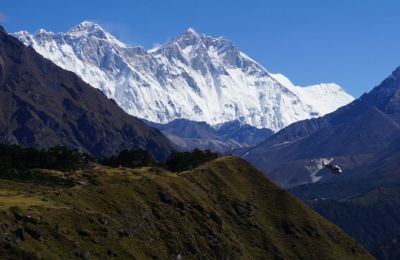
Everest Base Camp Trek - 14 days
Looking for an exciting Himalayan experience? Join us on our 14 day Everest Base Camp Trek - get ready to be stunned by breathtaking views and discover magical Nepalese cultures!
Inquire Now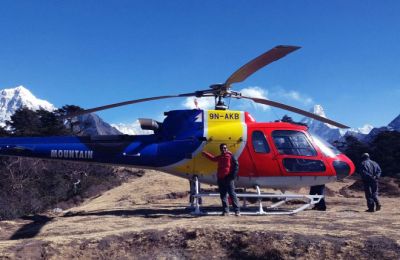
Everest Base Camp Luxury Trek with Helicopter Flight - 11 days
Take an extraordinary journey and explore majestic Mount Everest with a once-in-a-lifetime Everest Base Camp Trek. Enjoy the sights of local Sherpa culture along the way before soaring back down to Kathmandu in a helicopter return.
Inquire NowWhere to travel next?
Get help from our travel specialists for holiday ideas that matches your interests.
4. What is the Everest Base Camp Trek Route?
There are alternative routes to reach Everest Base Camp. The not so popular Classic Everest Base Camp Trek starts from Jiri. One has to have at least 20 to 25 days in hand to complete the classic trek to Everest Base Camp. The other alternatives are combining the EBC Trek with the three passes and also Gokyo lake and Gokyo valley. Among all these different itineraries, the one mentioned below is the most popular itinerary and trek route:
5. How many days to get to everest base camp?
Typically the trek to Everest Base Camp takes around 12 days to complete. The total distance from Lukla to Everest Base Camp and Back is around 140 km approximately. From Lukla it takes around 8 days to get to Base Camp and another 4 days to get back to Lukla. Trekkers normally keep 3 days as acclimatization days during the trek, thus it takes 8 days to reach Everest Base Camp.
The above information suits trekkers who are absolutely fit and can walk easily for 5 to 6 hours every day. Others might take 12 - 16 days to complete the trek.
6. What kind of food do we get on the trail to Everest?
Over the years, Everest Base Camp Trek has gained more popularity and many trekkers from different parts of the world throng to Nepal every year in order to complete their wish to reach the base camp of the world’s highest mountain. With popularity, it has brought with it more tea houses on the trail which provides a varied array of dishes to the trekkers.
Most tea houses offer a set of breakfast which usually consists of toasts, eggs, potatoes and tea or coffee. Sherpa stew is found nearly in every menu along with dumplings and noodles. The most popular perhaps is the traditional DAL BHAT. Lentil soup, rice, spinach and seasonal vegetables along with ‘aachar’ or pickle as they call it in the west is the meal to go for while trekking. The Nepali Dal Bhat is rich in carbs, this helps in providing the necessary energy required to walk for 6 to 7 hours every day for 14 to 15 on the trail. We even have a slogan in Nepal which goes like this- ‘DAL BHAT POWER, 24 HOURS’.
7. What kind of clothes, gear and equipment do I need for the trek to Everest Base Camp?
Having the right kind of clothes, gear and equipment is very essential for any adventure activity especially for trekking. This will not only keep you safe from the harsh weather conditions in the mountains but also add to your much needed confidence while trekking. Here is a detailed packing list for Everest Base Camp Trek:
This list may also be useful for other Adventure activities in Nepal or other Extra activities in Nepal.
Please check Packing List For Trekking In Nepal to know detailed list of clothes, gear and equipment needed and also other additional information about travelling to Nepal.
Featured Trips
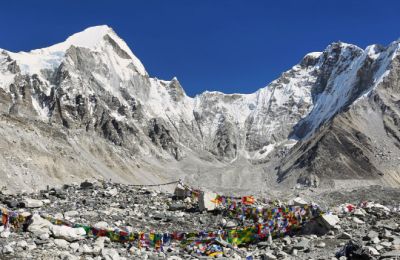
Everest Base Camp Short Trek Heli Return to Lukla - 12 days
Everest Base Camp Short Trek takes you across the highest trekking trail on Earth. Fulfill your lifelong dream to Trek Everest Base Camp and return from Kalapatther to Lukla.
Inquire Now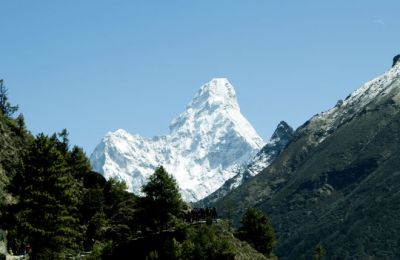
Short Everest Base Camp Trek Itinerary - 12 days
Short Everest Base Camp Trek itinerary is a fast-paced journey in the isolated ethnic Sherpa settlement at Khumbu region. 12 days itinerary is suited for those who are short on time but wish to set foot on Everest Base Camp
Inquire NowWhere to travel next?
Get help from our travel specialists for holiday ideas that matches your interests.
8. Is drinking water available during the trek? Is it safe?
For most of the trekkers from different countries the water found on the trail may not be suitable because foreigners are used to drinking bottled water on everest base camp trek. Most of the tea houses on route of everest base camp trek will provide bottled, boiled and filtered water. If you decide to drink the water provided from the tea houses, we would further advise you to use iodine and other purifying agents to treat the water before drinking. Bottled mineral water is also easily available on the trail. Most of the local bottled mineral water is manufactured in the mountains and sold only in the mountains. On the trail of everest base camp, there are many streams and waterfalls from where one could get drinking water but one needs to purify them before drinking.
9. Can the domestic flight to Lukla get delayed or cancelled?
Lukla is situated at an altitude of 2860m/9383 ft. The weather up there gets unpredictable at times thus causing delays and flight cancellations. Some days, the weather may cause delays for only a few hours but on other worse conditions, the flight may remain cancelled for days on end. If somehow your flight gets cancelled, you can plan your flight for the next day and the airlines will definitely help you with the same. If the flight gets cancelled for days on end, you could opt to travel by road to Salleri or Jiri and start your trek from there. If you do this, you will have to add a few extra few days to your itinerary but it will definitely be worth it as you will be doing the classic Everest Base Camp Trek. In case if the second option is not feasible for you, most of the well organized and professional companies will definitely offer you an alternate trek like Annapurna Base Camp Trek, Manaslu Circuit Trek etc.
10. What is Acute Mountain Sickness (AMS)? How likely am I to get AMS?
Acute Mountain Sickness (AMS) is the negative health effect of high altitude. This is caused by rapid exposure to low amounts of oxygen in places of high altitude. The symptoms of AMS may include headaches, vomiting, trouble sleeping, dizziness, tiredness etc. AMS can quickly progress to HAPE- High Altitude Pulmonary Edema which is associated with shortness of breath and HACE- High Altitude Cerebral Edema which in turn is associated with confusion and hallucinations.
Acute Mountain Sickness typically occurs only above 2500 metres. Some may even show symptoms at lower altitude. AMS normally occurs when the person has had a history or episodes of AMS in the past. It may even be caused by high level of activity or a rapid increase in Elevation without proper acclimatization. One cannot really point out who will get AMS and who will not. Sometimes even the best of the best suffer from Acute Mountain Sickness. The only advise we can give you is to recognize the symptoms and act on it immediately. The best remedy for Acute Mountain Sickness is to decend, decend and decend some more. Everest Base Camp Altitude sickness can happen to anyone and nobody can say that it won’t happen to him or her during the trek because even seasoned and veteran climbers face altitude sickness sometimes
- Written by: Naba Raj Amgai
Updated: Feb, 2, 2021

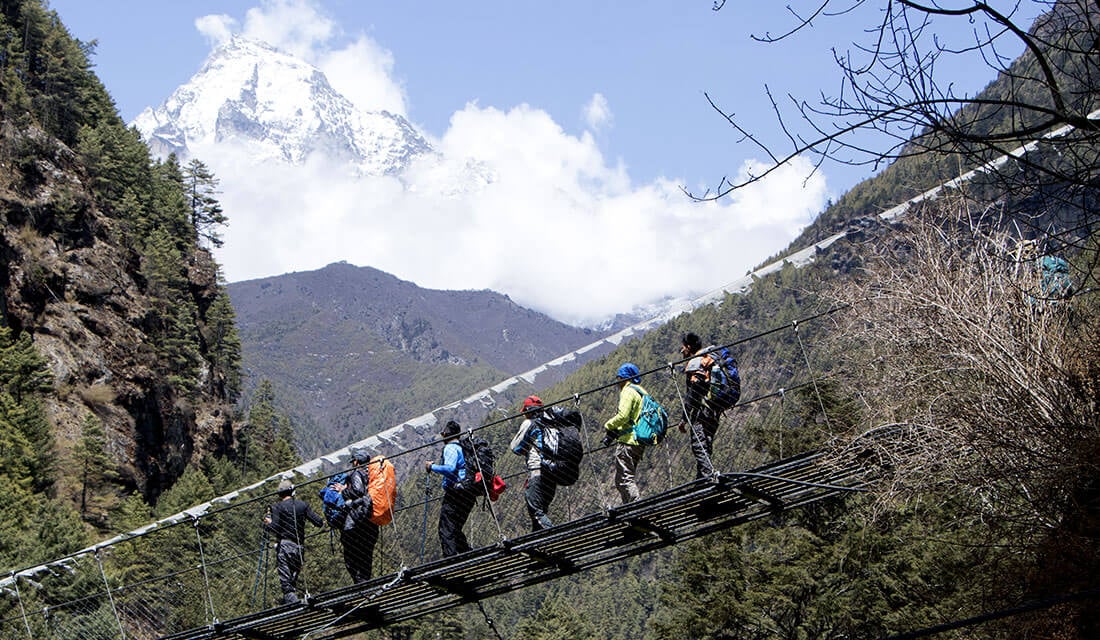





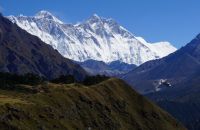
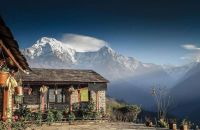
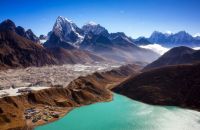
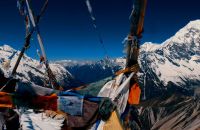
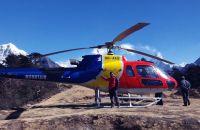








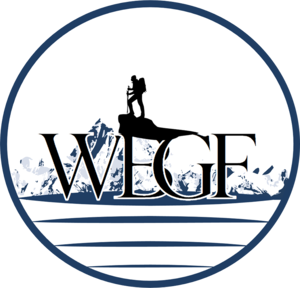







Recent Comments
A blog which answers my initial inhibition of taking the popular Everest base camp trip. It helps me to know what is the basic requirement in terms of expectation vs reality. T